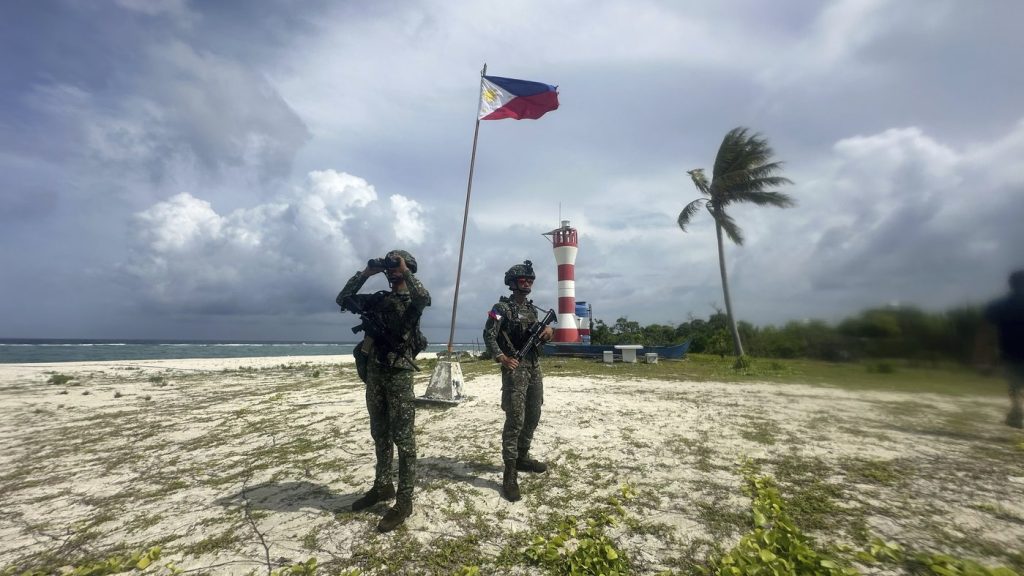WEST YORK ISLAND, South China Sea (AP) – On a recent visit to West York Island, a picturesque location in the disputed waters of the South China Sea, a Filipino army official expressed deep emotion, kneeling to kiss the shore while holding a Philippine flag. Col. Francel Margareth Padilla, a military spokesperson, described the 18.6-hectare island, known as Likas, as beautiful and emphasized the Philippines’ commitment to fighting for its territorial rights. This island is one of nine occupied by Filipino forces amidst ongoing territorial disputes with neighboring China.
West York Island, with its stunning white-sand beaches and turquoise waters, has the potential to become a significant eco-tourism destination in tropical Asia. However, Filipino officials' aspirations to open it to tourists have been impeded by the complexities surrounding territorial tensions, particularly with China, which claims almost the entire South China Sea. This area is vital for global trade and is believed to be rich in natural resources such as gas and oil. China has increasingly showcased its military strength, claiming historical ownership since ancient times.
Besides China, other claimants to the waters include Vietnam, Malaysia, Brunei, and Taiwan, leading to heightened confrontations at sea. The disputes have become a sensitive facet of the broader geopolitical rivalry between Beijing and Washington. Both former U.S. Presidents Joe Biden and Donald Trump have condemned China’s aggressive tactics in the region, which have included confronting Philippine forces using powerful water cannons and military-grade lasers.
Under President Ferdinand Marcos Jr., who took office in mid-2022, the Philippines has intensified efforts to document and expose China's aggressive actions through video and photographic evidence, aiming to galvanize international pressure on Beijing. Recently, a small group of journalists, including two from the Associated Press, were invited on a naval patrol to observe these Philippine-claimed territories.
During this patrol, the BRP Andres Bonifacio warned Chinese coast guard and militia vessels to move away from Philippine waters, with the latter asserting their sovereignty without provocation. On West York Island, two Filipino marines stationed there kept watch with M4 rifles, watching for the presence of Chinese or Vietnamese ships.
West York Island is one of the most distant outposts for the Filipino military, located far from the nearest province of Palawan. Conditions there are challenging; soldiers experience periods of isolation, with sporadic communication with family and limited amenities, relying on ships for food supplies and occasionally growing vegetables and raising livestock to supplement their diet. Col. Padilla noted the personal sacrifices made by troops living in such remote locations.
In contrast, Thitu Island, the largest Philippines-claimed isle, has developed a small fishing village alongside military forces, showcasing significant infrastructure improvements over the years, including a concrete runway and a coastal surveillance center. While some residents find solace in the tranquil environment, the presence of Chinese ships has posed significant challenges for local fishermen, who report being frequently blocked from accessing their traditional fishing grounds.
Fisherman Larry Hugo mentioned the threats posed by the increasing proximity of Chinese vessels around Thitu, describing the situation as dangerous, particularly for those in small boats traversing these contested waters. The expanding Chinese territories have transformed the fishing landscape, limiting locals' ability to fish freely and exacerbating tensions in an already precarious environment. As these geopolitical tensions continue, the daily lives of those in these disputed territories remain deeply affected.











